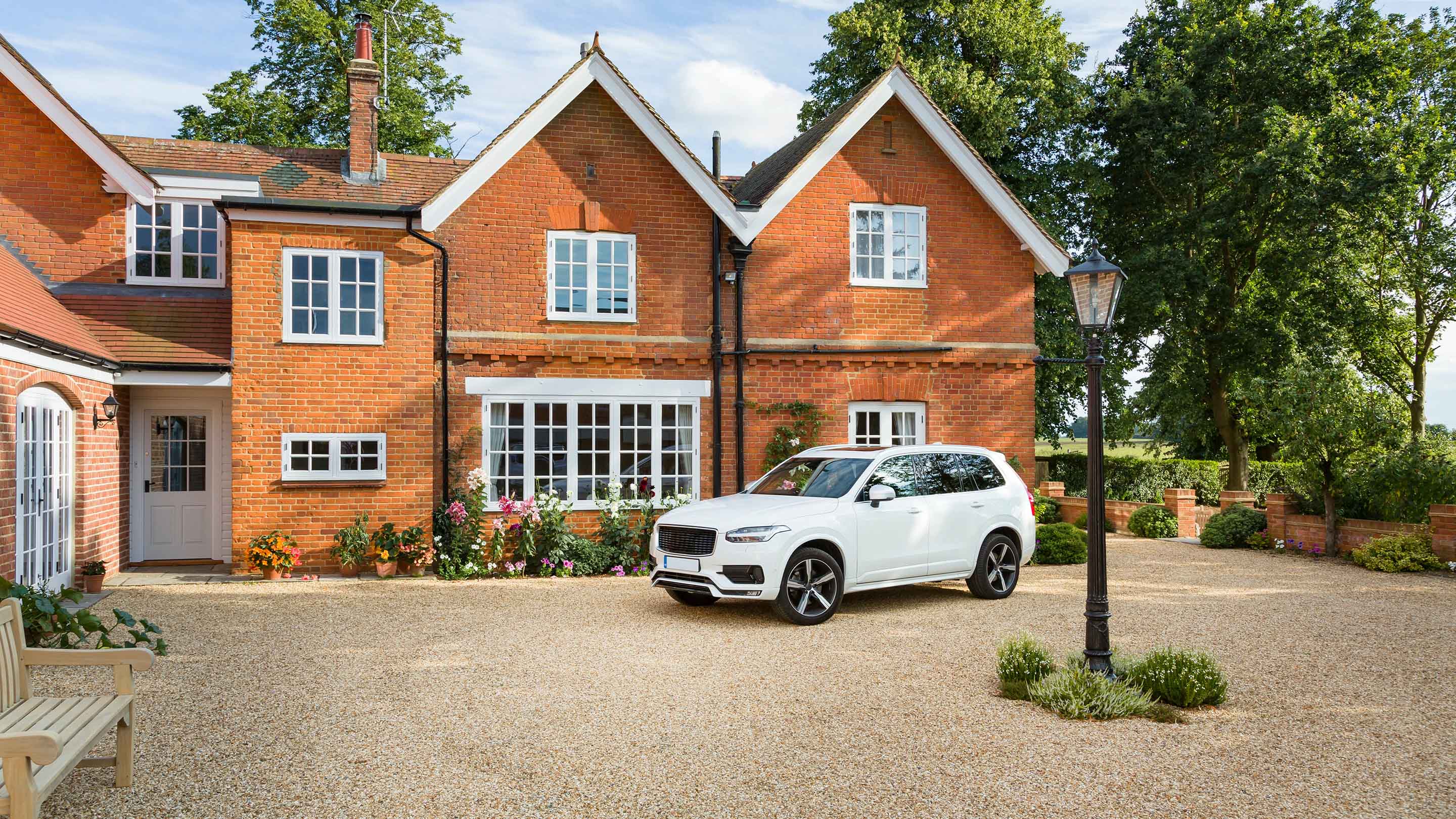
- Research by Aviva reveals that more than a quarter (28%) of UK garage owners hardly ever use their garage to park their car[1]
- More than a fifth (21%) find it difficult to park in their garage, and 16% believe their car is too big
- Half (52%) of drivers have bumped or scraped their car while parking more generally, and a fifth (20%) struggle to parallel park
- Analysis reveals that cars have grown by 22% over the last 20 years[2]
- Claims data by Aviva reveals bumps and scrapes accounted for 8% of all claims in 2024[3]
New research by Aviva reveals that more than a quarter of UK garage owners (28%) hardly ever park their car in their garage amid concerns about car size and parking.
Although more than a third (38%) of UK drivers have access to a garage, 42% prefer to park on their driveway. More than a fifth (21%) say their garages are difficult to park in, and 16% believe their car is too big, which could in part explain why two thirds (66%) use their garage primarily for storage instead.
Separate Aviva analysis finds that the average car size has increased by 22% over the past 20 years[2]. This trend could possibly influence future choices, with a third (33%) of drivers stating that they would be discouraged from buying a larger vehicle.
Martin Smith, Motor Claims Manager at Aviva, said: “It’s interesting to see that garage owners are favouring other locations for parking their car, which could in part be explained by the gradual increase in car size over the years.
“Garages can offer an additional layer of security. However, if you find that you struggle to park, always check your rear view and wing mirrors first. Although parking sensors and cameras can be a helpful guide, be careful not to over-rely on these, as there could be an object, item or person in your blind spot which wouldn’t be visible to the car’s camera or sensor.”
The research also reveals that some drivers struggle to park more generally, with over a third (34%) attributing this to a lack of confidence. A further 29% feel pressured by other drivers, and 23% say past parking mistakes have impacted their ability. The findings also suggest a growing dependence on technology to assist them with parking, with one in six (16%) blaming the absence of parking sensors or rear cameras in their car for their difficulties.
According to the data, drivers are most likely to drive into:
- A wall (16%)
- A bollard or lamp post (both 11%)
- A parked vehicle (10%)
- A fence or bush/plants (both 9%)
- A garage (8%)
In almost half of cases[4] damage was cosmetic (49%). However, such incidents have also led to damaged bumpers (39%), damaged headlights (17%) and knocked wing mirrors (15%).
Supporting the view that bigger cars may be more difficult to park, four in 10 (41%) misjudged the distance, and 23% thought the area they were trying to squeeze into was too small. A further one in 10 (11%) said they were still adjusting to their new car and its size.
However, a further 23% also weren’t concentrating – with men being more likely to admit this (26%) than women (19%).
The research also reveals that parallel parking is the most difficult parking manoeuvre, with a fifth of drivers (20%) saying they struggle with this.
| Area or manoeuvre | Percentage of drivers who find parking difficult in this place |
|---|---|
| Anywhere I have to parallel park | 20% |
| A car park they are not familiar with | 19% |
| A multi-story car park | 19% |
| On-street parking | 12% |
| Anywhere I have to bay park | 15% |
| A car park/ driveway | 7% each |
| In a garage | 6% |
Despite bumps and scrapes accounting for 8% of all claims in 2024[3], the research found that more than a third (37%) of drivers did not report this to anyone[1], which is a condition under most insurance policies and in some instances, a legal requirement.
Smith adds: “Many of us will unfortunately experience bumps or scrapes on our cars in our lifetime. If this happens, it’s important to let your insurer know. Failing to do so could result in you being unable to make a claim, as this is often a condition in most insurance policies. In some instances, you may also need to let the police know about your collision under the Road Traffic Act.
“Most insurers will also ask where your car is parked overnight so make sure you answer this accurately as it could impact a claim if you provide the wrong information.”
-ends-
References
1The research was conducted by Censuswide, among a sample of 1,344 car drivers (aged 17+) - natural fallout among a recruitment of 2,000 general respondents. The data was collected between 23.05.2025 and 27.05.2025. Censuswide abides by and employs members of the Market Research Society and follows the MRS code of conduct and ESOMAR principles. Censuswide is also a member of the British Polling Council.[↑]
28% statistic found by combining ‘I never use’ and ‘I rarely use this to park in’.
50% statistic found by the inverse of ‘I have never damaged my car by accidently driving into something’, ‘I have done one or more of these but not damaged my car’ and ‘I have damaged my car in this way but I do not remember how’.
2Stat found by analysing the top five selling cars in 2004 and 2024 and width and length of cars from Parkers Guide in these years to calculate average size. Average = 22% growth over 20 years.[↑]
3Aviva motor claims data from January – December in 2024.[↑]
4The research was conducted by Censuswide, among a sample of 1,344 car drivers (aged 17+) - natural fallout among a recruitment of 2,000 general respondents. The data was collected between 23.05.2025 and 27.05.2025. Stats calculated by looking at those who have ever damaged their car by accidently driving into/scraping a stationary object/objects while trying to park.[↑]
Enquiries
Amy Penn
General Insurance
-
Phone
-
+44 (0) 7385 011200
-
-
Email
Notes to editors:
- We are the UK's leading diversified insurer and we operate in the UK, Ireland and Canada. We also have international investments in India and China.
- We help our 25.2m customers make the most out of life, plan for the future, and have the confidence that if things go wrong we’ll be there to put it right.
- We have been taking care of people for more than 325 years, in line with our purpose of being ‘with you today, for a better tomorrow’. In 2024, we paid £29.3 billion in claims and benefits to our customers.
- Aviva is a Living Wage, Living Pension and Living Hours employer and provides market-leading benefits for our people, including flexible working, paid carers leave and equal parental leave. Find out more at www.aviva.com/about-us/our-people/
- As at 30 June 2025, total Group assets under management at Aviva Group were £419 billion and our estimated Solvency II shareholder capital surplus as at 30 September 2025 was £7.0 billion. Our shares are listed on the London Stock Exchange and we are a member of the FTSE 100 index.
- For more details on what we do, our business and how we help our customers, visit www.aviva.com/about-us
- The Aviva newsroom at www.aviva.com/newsroom includes links to our spokespeople images, podcasts, research reports and our news release archive. Sign up to get the latest news from Aviva by email.
- You can follow us on:
- X: www.x.com/avivaplc
- LinkedIn: www.linkedin.com/company/aviva-plc
- Instagram: www.instagram.com/avivaplc/
- For the latest corporate films from around our business, subscribe to our YouTube channel: www.youtube.com/aviva
















